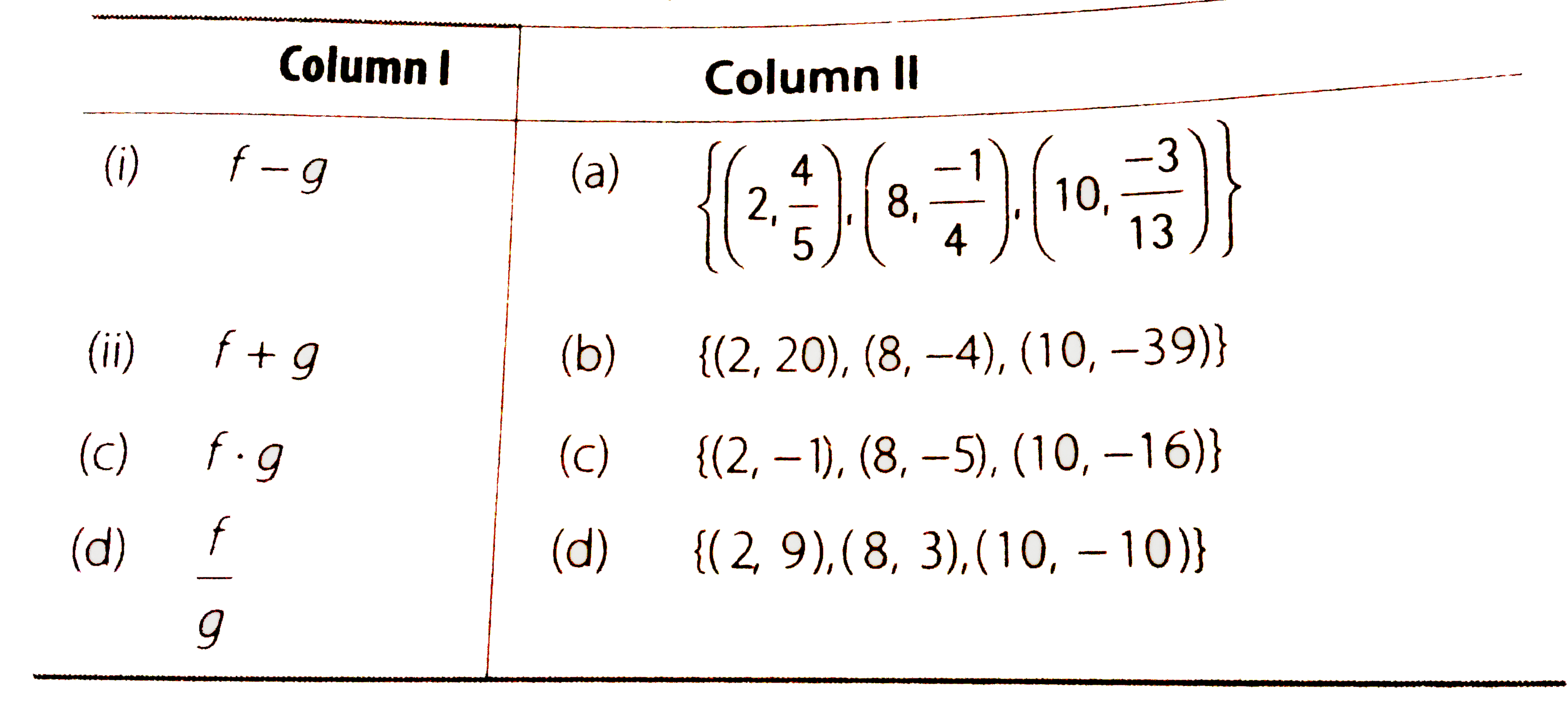Let and . Find .
The correct Answer is:(i) (ii)
dom
dom .
Topper's Solved these Questions
Similar Questions
Let f={(2,4),(5,6),(8,−1),(10,3)
and g={(2,5),(7,1),(8,4),(10,13),(11,5)}
be two real functions. Then, match the following .

The domain of f−g,f+g,f⋅g,fg is domain of f ∩ domain of g. Then, find their images.
View SolutionLet f and g be two real functions given by
f={(0,1),(2,0),(3,−4),(4,2),(5,−1)}
and g={(1,0),(2,2),(3,−1),(4,4),(5,3)}
then the domain of f⋅g is given by ..........
View Solution
Knowledge Check
If f={(1,2),(2,3),(3,5),(5,8)}andg={(2,1),(3,2),(5,3),(8,5)} then f∘g=
A{(1,2),(2,3),(3,5),(5,8),(2,1),(3,2),(5,3),(8,5)}B{(2,2),(3,3),(5,5),(8,8,)}C{(1,1),(2,2),(3,3),(5,5)}Dnone of these.If f={(1,4),(2,5),(3,6)} and g={(4,8),(5,7),(6,9)}, then gof is
A{ϕ}B{(1,8),(2,7),(3,9)}C{(1,7),(2,8),(3,9)}Dnone of theseIf f={(1,4),(2,5),(3,5)and
g={(4,8),(5,7),(6,9)}, then gof isA{}B{(1,8),(2,7),(3,7)}C{(1,7),(2,8),(3,9)}D{(1,8),(2,5),(3,9)}
Let A={1,2,3,4}. Let f:A→A and g:A→A
defined by f:={(1,4),(2,1),(3,3),(4,2)} and
g={(1,3),(2,1),(3,2),(4,4)}
Find (i) g o f (ii) f o g (iii) f o f .
View SolutionIf f={(5,2),(6,3)},g={(2,5),(3,6)}, write f∘g.
View Solutionif f={(4,5),(5,6),(6,−4)},g={(4,−4),(6,5),(8,5)} then find f+g
View SolutionIf U={1,2,3,4,5,6,7,8} and A={2,4,6,8}, Find (i) A' (ii) (A')'.
View SolutionLet A={1,2,3,4},B={5,6,7} and f={(1,6),(2,7),(3,5),(4,6)}. The f is :
View Solution
